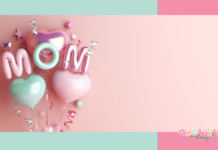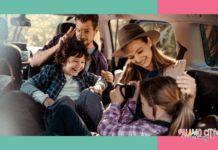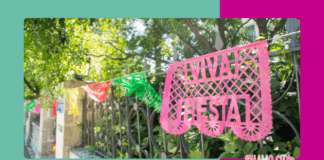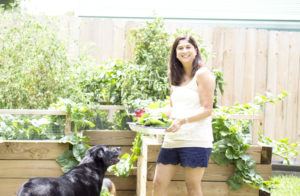
The Alamo City is lovingly referred to by many as a big city with a small-town feel, and having the opportunity to chat with born-and-raised San Antonian Esther Pipoly, founder of LOLA: Loss Of Life Advocates, really brought home that message of connection for me. Following the loss of her husband of more than 20 years to stage four cancer nearly four years ago was an experience filled with heartache and bewilderment in the struggle to navigate the waves of life-altering decisions crashing in quick succession. Looking back on the maze of grief and financial struggle, Esther created a company dedicated to offering the insight, support, and guidance she wished she’d had. For any who have struggled, we recognize the common thread which binds us together as a human family: we know that helping another aching heart has the power to lift us out of our dark place, softening our pain with purpose and meaning and the satisfaction that comes with lightening another’s load. This is the purpose of LOLA: to inform and serve as not only a guide through the inevitable struggle of loss itself, but to prepare individuals and families before they are called to walk that path, whenever it presents itself.
Chatting with Esther was inspiring, thought-provoking, and empowering all wrapped into one, and it prompted a series of uncomfortable yet needed discussions in my own family. I hope our interview will do the same for you.
Molly: To begin, would you tell me a little about what prompted you originally to create LOLA?
Esther: When I was looking for support through both my dad and my husband’s death, I couldn’t find anything online. I wanted somebody to be able to pick up the phone and say, ‘Let me tell you what’s going to happen: you’re going to be afraid, and you’re going to be sad, and you’re going to be overwhelmed, and you’re going to want to run away.’ And I didn’t really have that. I mean, I had friends who had gone through death, but nobody sat me down and prepared me for [all the emotions], so that really kind of started me with thinking, You know, what were the things that were missing from my experience, and what could I do to help other women? Initially it was just women because my husband was a business owner and I didn’t know anything about his business. He would always say to me, ‘Don’t worry, I[‘ve] got you; I have a great team, and everything’s going to be fine!’ And then, when he died, his team just…evaporated. They were just as freaked out as I was. So, they weren’t…present. And so of course, I made a lot of mistakes—financial mistakes. LOLA was birthed out of the idea of what if I could help other people, other families prepare. And not just when somebody dies, but wouldn’t it be great to have, you know, you and your husband sit down and say, ‘We’re going to take the eight hours right now to go through the process of knowing where everything is so that if something happens to you he knows where it’s at,’ and vice versa? [For example], we all have usernames and passwords. My husband’s Facebook page is still up because Facebook has a crazy process to take down someone’s profile when they die. So, unless you have the user ID and password, you can’t make any changes or disable it or anything. So that’s really how LOLA came about—I was looking to help women and families prepare.
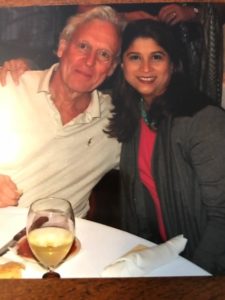
M: Did you always know you wanted to own your own business?
E: Yeah, in the early ’90s I actually owned my own business working events, marketing. We helped nonprofits develop events like golf tournaments or 5Ks, that sort of thing. I like networking and talking to people and connecting with people, but realizing that both myself and my husband were self-employed, we decided we needed health insurance and that one of us needed a regular job. So I made my way into working for several different health insurance companies—Humana, PCA, and a few others—eventually becoming an account manager. I was always a really relationship-driven person, and I loved networking and connecting and public speaking, standing in front of people to tell them what their health insurance benefits were. You know, it’s really interesting to see all of this coming full circle, because I did all of this for 23 years, and when Carl passed away one of the LOLA lessons I learned was that here I was so busy in the insurance world and yet I never stopped to ask, ‘Wait, what’s the guaranteed issue life insurance amount I can get on my husband without medical questions?’ I literally took $10,000 out—I took the cheapest amount I could—and I could have taken $75,000 or even up to $100,000 without any medical questions. At that time I didn’t know he was sick. I mean, he had his own life insurance policy, so he was like, ‘Just get the basic out on me. I’ve got life insurance, and I’m not going to die.’ Even with me being in the insurance world, talking and selling benefits, managing accounts for other companies, I didn’t ever think to check my own; that was a real wake up call for me. So this opportunity came up after my husband’s life insurance finally settled and I sat down, took a breath, and asked myself, ‘If I could start a company, what would I do and how would I do it?’ LOLA came really naturally. I knew I wanted to help people, and even though I know how sad it’s going to be and how hard it’s going to be, I know I’ll be able to put myself in their position and think, ‘What did I need at that time?’
M: Is LOLA difficult for you, in that sense of missing your husband, because it’s so tied to having gone through all of those experiences yourself? How do you move forward through all of that?
E: Yeah, it definitely is. I do a really good job of compartmentalizing and, you know, when I have those moments, I just get up and walk. Sometimes I’ll excuse myself from a meeting and walk into the bathroom for a few minutes. One of the things my daughter has coached me in, from her yoga standpoint, is that we are all in this world to do good, and that helps me realize and remember the value of my ability to be there for people, to be empathetic in a time when they need it the most. And so I guess what I look forward to most in those times of grief and fear and financial struggle, is being able to help someone walk those uncharted waters and make it easier on some level for them.
M: What is the best piece of advice you’ve ever received?
E: Ooh, yeah, that would have to be “knowledge is power”: the more you know, the more power you have; the more power you have, the better decisions you can make; the better decisions you can make, the more peace you have. You know, my parents were both educators, and so as kids we were never allowed to say we were bored; we had to go read a book (laughs). So whenever something is failing me, it always comes back to, what do you know?
M: Knowing that both of your children are grown and successful, what advice would you share with moms navigating parenthood with adult kids?
E: Probably “stay silent” (laughs), because sometimes I find that I try to comfort my children with words, and then my words just screw it all up (laughs). I need to ask more questions, listen, and let them work it through. Words are really powerful—they’re like toothpaste: once it’s out, it’s out, and there’s no putting it back. But it’s really hard.
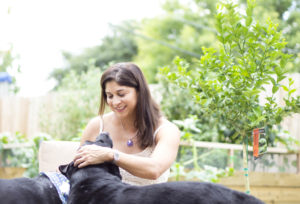
M: What is your favorite thing about San Antonio? What brought you back after living away for a while?
E: Ohhh, man—the food! I mean, not just because I’m an emotional eater, but I found myself in Denver, where we were living when Carl passed away, thinking, All I want is Rudy’s BBQ! But the people, too—they are so engaging and really friendly. They really care about each other. It’s what San Antonio is all about. It’s a place where you know you’re not alone.
M: If you could give one piece of advice to someone before they go through losing someone they love, what would it be?
E: Sit down in a quiet space, by yourself, and imagine your life without that person. [Imagine] what it would look like, what it would feel like, and what kind of person you would become. A lot of times, you know, death is sudden; it happen[s] so quickly. Even for what we are doing with LOLA to help people prepare, we’re trying to get people to imagine ‘what if?’. We know we’re all going to die at some point, but I would say to sit down and have a really introspective moment and say, “You know, if this person wasn’t here, how would this affect my life? What are the things and the tools and the people I can I identify now that would help me?” If you can imagine it now and put yourself in that position and predicament and that feeling of loss and sadness, and identify the people you would want to guide you through this, who will show up and really be there as your support team, that will make a huge difference. We can imagine a lot of things, but it’s hard for people to imagine if the person they love just didn’t come home. And for me, that moment was getting on a tiny plane with my husband and having him lose consciousness in my arms, and having to talk him through and thanking him for everything little thing he had ever done for me… I never pictured myself going through that, and in that moment, having the clarity that I needed to tell him all of those things right then [was important]. If someone had told me six weeks earlier when he got sick and was diagnosed with stage four [cancer] in four organs when he said he didn’t feel well…if someone had been able to sit me down and say, “OK, here’s the deal. Here’s the likelihood of what’s going to happen, so you need to prepare yourself emotionally and decide how you’re going to do this,” it would’ve helped. I didn’t have that, and that is why I want LOLA to be able to be present and get right to the place that can help someone else.
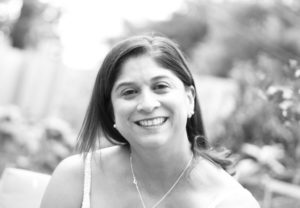
Esther is the founder and owner of LOLA and the sometimes silent mom to Nathan (34) and Adyn (27). Visit her website www.lossoflifeadvocates.com for more information and service offerings and receive a free 30-minute phone consultation.




